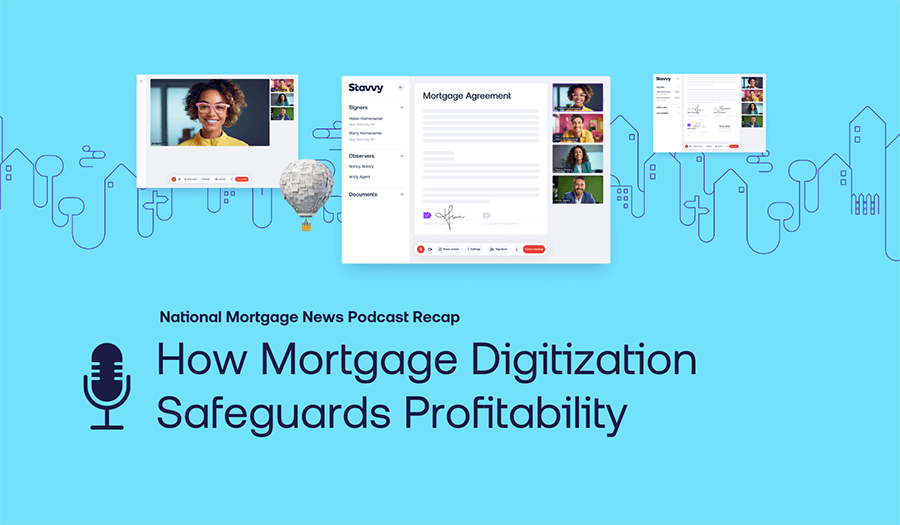After the Federal Housing Finance Administration (FHFA) announced that attorney opinion letters (AOLs) would be accepted in place of traditional title insurance in April 2022, the industry change is leaving consumers, lenders, and title professionals with unanswered questions.
For many, the announcement came with little notice or context, leaving vulnerable first-time homebuyers in need of clarification about title insurance alternatives.
The concern for the consumer is what drove Diane Tomb, CEO of the American Land Title Association (ALTA), to get involved in the conversation and dedicate her time and energy to educating homebuyers, lenders, and industry colleagues about the reality of AOLs.
“We think it’s critical that as people look at the alternatives, [they realize] that there are real differences between the protection title insurance provides, and what these alternative products have.”
- Diane Tomb
While adopting AOLs has lagged, the risks of attorney opinion letters remain, which is why Diane continues to advocate for the FHFA to pause acceptance until unanswered questions are addressed.
Diane joined Jeremy Potter on Stavvy’s Finside Chats® podcast to discuss this hot-button and highly debated topic in the industry.
On this episode of Finside Chats®, you’ll learn about:
- What the FHFA and government-sponsored entities (GSEs) hope to accomplish by accepting attorney opinion letters
- The risk associated with choosing an attorney opinion letter over a traditional title insurance policy
- Why title insurance is the best option for homeowners and lenders
Listen now: Will An Attorney Opinion Letter Replace Title Insurance?
Attorney opinion letter to address affordability concerns
To understand the FHFA and GSEs’ decision to accept attorney opinion letters, Diane talked with the Director of the FHFA, Sandra Thompson.
When asked why they chose to accept AOLs instead of title insurance, Director Thompson and the FHFA explained that their decision was rooted in lowering costs and making the home buying process more affordable for consumers.
Affordability is a real issue in the industry, particularly for low and moderate-income individuals and families. However, there’s concern that despite good intentions, low-cost alternatives to title insurance may cost homeowners and lenders more in the long run, especially if not adequately covered in the event of a claim.
“We’ve been working diligently to educate and understand what [the GSEs] are trying to accomplish. But we also want to ensure we don’t do anything that would ultimately adversely affect the consumer and not provide them the protection they deserve,” said Diane.
Lowering costs with an attorney opinion letter may lead to increased risk
AOLs are not a new concept in the mortgage industry. This title insurance alternative predated traditional title insurance and was created to protect all parties involved in the home buying process. Once title insurance was introduced, lenders moved away from AOLs because title insurance provided the best protection at the most affordable price.
When accepting attorney opinion letters, lenders are more susceptible to claims traditionally covered by a title insurance policy, including fraud, forgery, incapacity, impersonation, federal tax liens, and HOA liens. Similarly, on the consumer side, homebuyers may be tempted by lower closing costs. Still, in the event of a claim and without proper title insurance coverage, they could be on the hook for significant expenses and, in a worst-case scenario, their home.
“The other piece that I think is really, really critical is to make sure people realize that with these alternative products, if something does pop up, maybe you’ll get a claims check if you have the resources to hire an attorney and do all the other things these alternatives need. But with title insurance, our job is to keep you in the house - that’s our first goal. You’re not going anywhere; we’re going to fix it and keep you in it because nobody wants a check at the end of the day. They want to stay in their house,” said Diane.
Title insurance is the better option when weighing risk and reward
Unfortunately, there is no tangible evidence that AOLs benefit the protected parties financially. While marketed as the lower-cost option, Diane shared that, “the average cost of title insurance has decreased 7.8% nationally since 2004, and roughly 5% in the last two years.”
This is an important distinction, particularly for lenders with a risk-based mindset. “Title insurance has either stayed constant or decreased [costs].”
Another constant theme throughout the conversation was Diane’s concern with the industry moving forward with this title insurance alternative and how critical it is for lenders and homeowners to recognize that AOLs differ from title insurance significantly. When boiled down, AOLs generally provide inadequate protection for homeowners and lenders in case of a claim.
“There are so many things happening [during the home buying process] that making sure consumers have access to folks who can guide them and who understand [all the information] is invaluable. And I think throwing a product into the market that nobody really understands or knows what’s going to happen, and then saying that it’s less expensive… is really dangerous.”
There has been an industry concern that technology will replace title insurance professionals. Interestingly, Diane questions that thinking and reflects on the many innovations the title industry has implemented over the last few years. She also suggests that AOLs may be the one thing to challenge title and settlement agents' expertise, not technology.
With a title insurance policy in place, a title professional can provide a lender and homeowner with professional expertise, paperwork documenting their property rights, and a defense against claims post-closing. This level of confidence and protection is nonexistent with an AOL, leaving lenders and homeowners exposed and the industry needing clarification on who is responsible for an issue or mistake. Is it the lender, the homeowner, the attorney, or a combination of the three?
As the industry continues to shift and sway, and ALTA presses for more answers, lenders and homeowners must determine their tolerance for attorney opinion letters instead of title insurance policies and what risks they are comfortable taking on.
Learn more about how the  is taking real estate beyond documents.
is taking real estate beyond documents.



![[Webinar Recap] Advancing Your Digital Default Servicing Strategy](https://blog.stavvy.com/hubfs/advancing-your-digital-default-servicing-strategy-blog-recap.png)